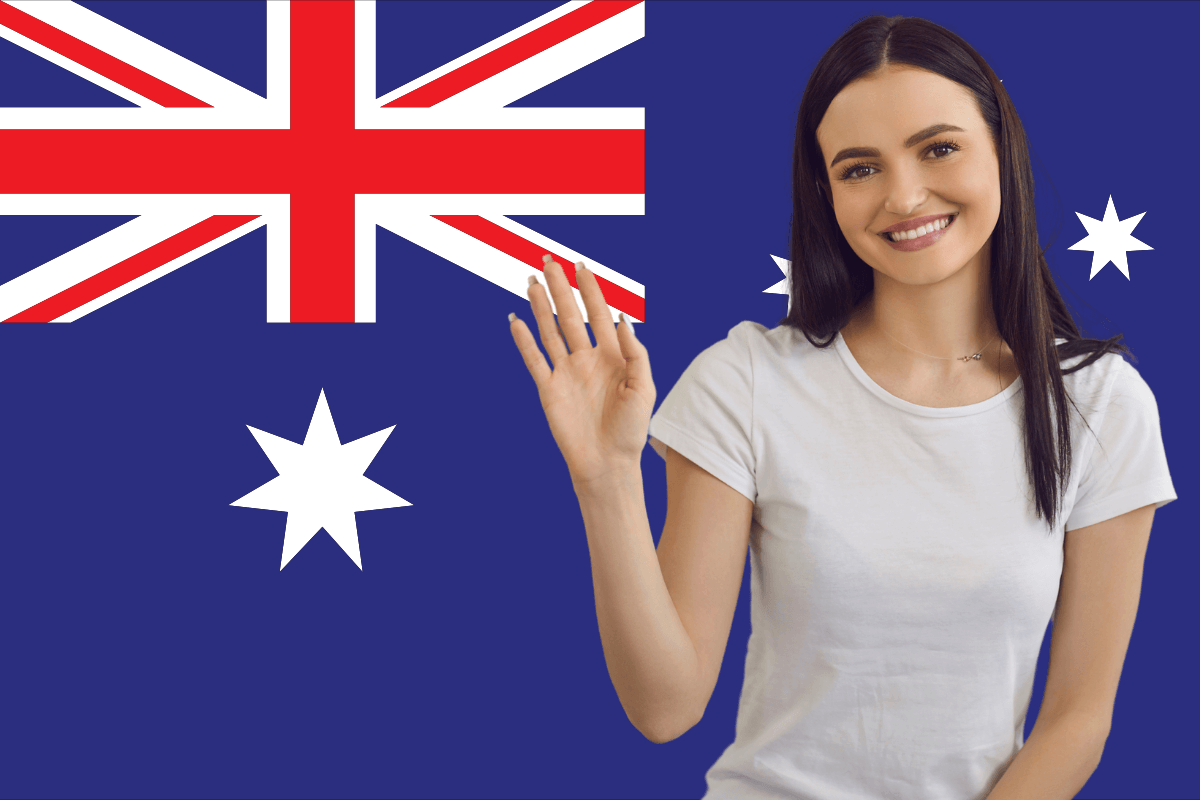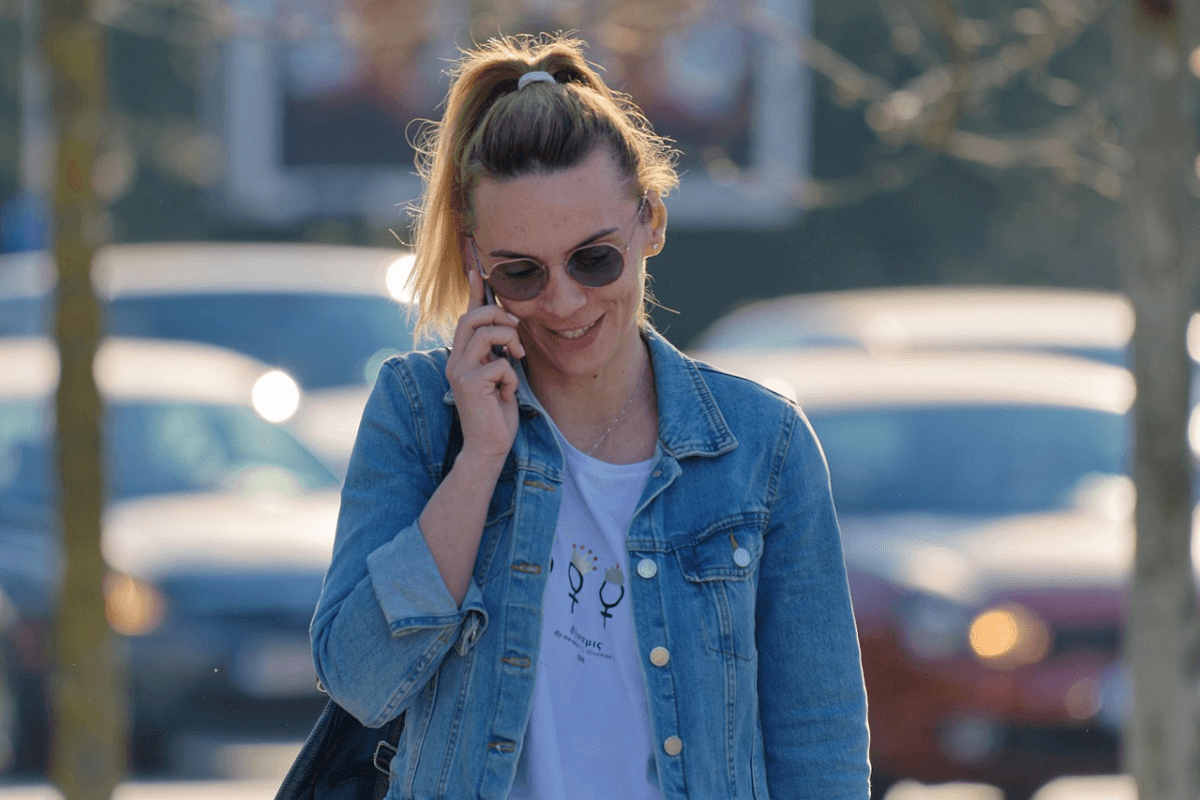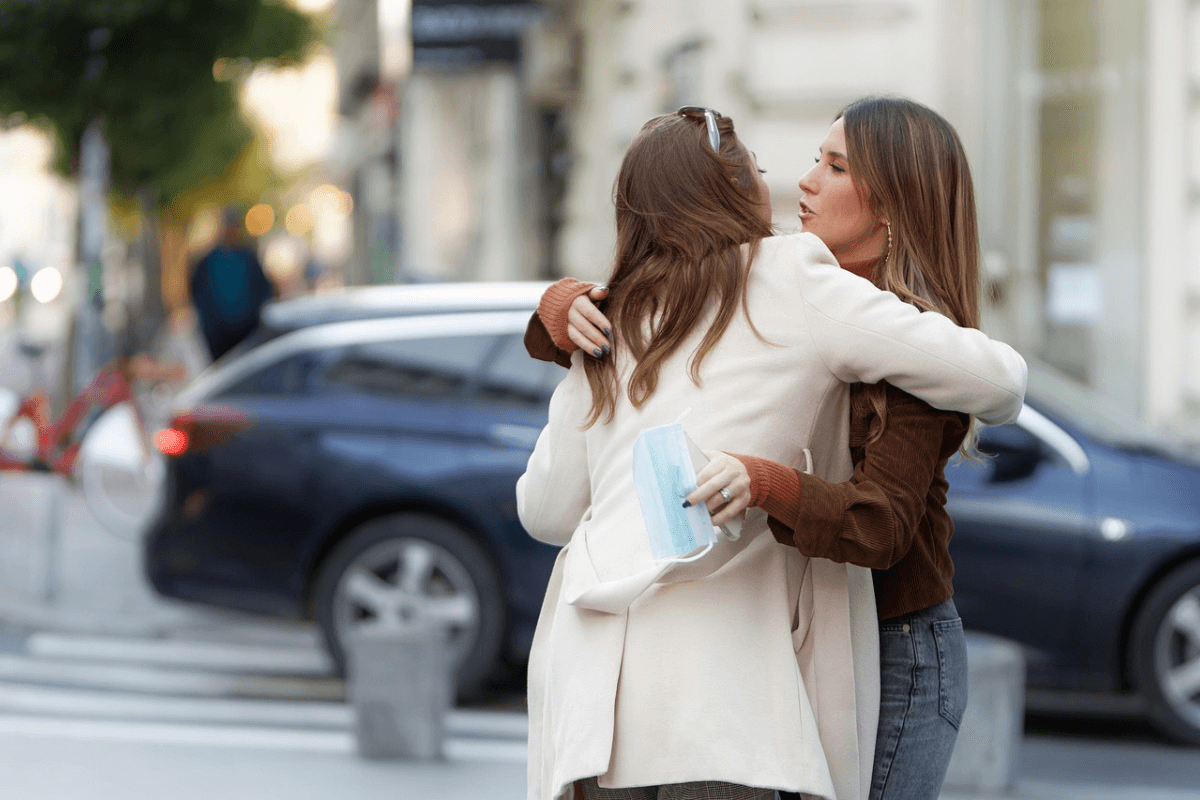Greetings and farewells are an area of language ripe for slang.
We use them every day, and it’s something that’s particularly important to add a bit of uniqueness and emotion to.
Depending on the context, saying goodbye can be really sad!
In Australia this is just as true as anywhere else, so today, we’re going to look at some examples of Australian slang for goodbye.
So, let’s get started.

Australian Slang For Goodbye
Catch you later

“Catch you later” is a laid-back farewell that has deep roots in Australian slang.
While widely recognized in English-speaking countries, it gained particular traction in Australia, thanks to the country’s strong surfing culture.
The phrase was originally used by farmers in the mid-20th century, often as a farewell after a long night of drinking.
Over time, it became a standard way to say goodbye, and it remains one of the most commonly used Australian slang farewells today.
Examples in sentences:
- “Alright mate, catch you later!”
- “I’ve got to head off now—catch you later!”
- “We’ll catch you later at the pub, yeah?”
- “No worries, I’ll catch you later in the week.”
- “It was great seeing you, catch you later!”
Cheerio

“Cheerio” is a bright and upbeat farewell that has been in use for well over a century.
While it originated in British slang, Australians have embraced it and now use it more frequently than the British themselves.
The term evolved from earlier variations like “cheero” and has remained a part of Australian slang, particularly in certain social settings.
Despite its friendly tone, it can sometimes sound a bit old-fashioned, but you’ll still hear it now and then.
And no, if someone says “cheerio” in Australia, they aren’t offering you a bowl of cereal!
Examples in sentences:
- “Alright, cheerio then! See you tomorrow.”
- “I’m off to work now—cheerio!”
- “It was lovely catching up, cheerio for now!”
- “Cheerio, mate! Safe travels!”
- “I waved and called out ‘cheerio’ as they drove away.”
Cheers

“Cheers” is one of the most useful slang terms in Australian English, serving as both a way to say goodbye and an informal way to express gratitude.
While it originated in the UK, Australians adopted it enthusiastically, particularly from British TV shows, movies, and migrants.
It became widely popular in the late 20th century, with a 1976 newspaper noting its rise as a common way to say “thank you” and “goodbye.”
It’s especially handy for quick interactions—if you hear an Aussie say “cheers,” they might be thanking you, bidding you farewell, or both!
Examples in sentences:
- “Cheers for the lift, mate!”
- “Alright, I’m heading off—cheers!”
- “I handed him his coffee, and he just nodded and said, ‘Cheers!’”
- “Cheers, now! See you later.”
- “She waved and called out, ‘Cheers, guys!’ as she left.”
Have a good one/gooden

“Have a good one” is one of the most frequently heard farewells in Australia.
While not exclusive to Australian English, it is more widely used here than in other English-speaking countries, where it tends to be more of a regional colloquialism.
The phrase is a variation of “have a good day,” with “one” referring to the day itself.
A shortened version, “have a gooden,” is also common.
Some theories suggest it originated from the drug culture of the 1960s, where “have a good one” meant to enjoy a good trip.
However, it’s more likely a natural evolution of “have a good day.”
The earliest recorded use in print comes from a newspaper ad in 1976.
Today, it’s a popular, friendly farewell used across Australia.
Examples in sentences:
- “I’m off now, have a good one!”
- “Thanks for the help—have a gooden!”
- “See you tomorrow, mate. Have a good one!”
- “She waved as she left and called out, ‘Have a gooden!’”
- “The cashier handed me my change and said, ‘Have a good one!’”
Hooroo

“Hooroo” is one of the most distinctively Australian farewells, rarely heard outside the country. If you’re familiar with Australian slang, the “-oo” ending will seem familiar, as Aussies love words with this sound.
While it had largely fallen out of use by the early 2000s, it saw a bit of a resurgence in the mid-2010s.
Its origins trace back to British English in the 1700s, when “hooray” or “hurray” was used as a farewell.
By the 1850s, “hooroo” had become a popular farewell phrase in Australia, though its usage declined over the next 150 years.
Today, it remains a fun and uniquely Aussie way to say goodbye.
Examples in sentences:
- “Alright mate, I’m off—hooroo!”
- “We waved and shouted ‘hooroo’ as they drove away.”
- “She ended the phone call with a cheerful ‘hooroo!’”
- “You don’t hear people say ‘hooroo’ much these days, but my granddad still does.”
- “The old bloke tipped his hat and said, ‘Hooroo, young fella!’”
Keep it real

“Keep it real” has two meanings, both tied to the idea of authenticity.
On the one hand, it’s a general philosophy—encouraging someone to stay true to themselves.
On the other, it naturally evolved into a farewell, as in “while I’m gone, keep being yourself.”
This phrase became popular in Australian surfing culture and remains in use today.
While its exact origins are unclear, it gained widespread recognition in the 1980s, thanks to its frequent use in music and film.
You might not hear “keep it real” from everyone in Australia, but certain crowds—particularly surfers and younger generations—still use it.
Examples in sentences:
- “Catch you later, mate—keep it real!”
- “I always tell my kids to keep it real, no matter what.”
- “We said our goodbyes, and he gave me a nod—’Keep it real, dude!'”
- “Not many people say ‘keep it real’ anymore, but I still like it.”
- “She left with a smile and a quick ‘keep it real, guys!’”
See ya

“See ya” is a classic, all-purpose goodbye that is widely used in Australia.
While it’s a common phrase in many English-speaking countries, Australians have made it a staple of their everyday speech.
Like many informal phrases, tracing its exact origins is difficult. It likely developed naturally in spoken English long before written records captured it.
Australians especially love “see ya” because it’s quick, efficient, and works well in casual interactions.
You might also see it written as “cya” in text messages or online chats.
Examples in sentences:
- “Alright, mate, see ya tomorrow!”
- “I’ve got to run—see ya!”
- “We wrapped up our chat with a quick ‘see ya’ and went our separate ways.”
- “I’ll be at the pub later if you’re around—see ya then!”
- “He shot me a text: ‘Cya at 7!’”
See ya round like a rissole

“See ya round like a rissole” is a quirky and uniquely Australian variation of “see ya.”
While it has largely fallen out of fashion, it remains a fun example of classic Aussie slang.
The phrase originates from outback slang in the mid-19th century, though its exact history is difficult to trace due to a lack of written records.
A rissole is a small, round meat patty, often coated in breadcrumbs and fried.
The play on words comes from “see you around” with “round” linking to the round shape of a rissole.
Though rarely heard today, some Aussies (especially in the outback) still use it occasionally.
Examples in sentences:
- “Gotta get going, mate—see ya round like a rissole!”
- “We’ll catch up next week. See ya round like a rissole!”
- “He waved as he left, chuckling—‘see ya round like a rissole!’”
- “Haven’t heard that one in years! ‘See ya round like a rissole,’ huh?”
- “My granddad used to say ‘see ya round like a rissole’ every time he left the pub.”
Ta-ta

“Ta-ta” is a friendly farewell that may sound unusual to American English speakers but has been in use for centuries.
The phrase originated in British English and was first recorded in 1823 as a **nursery saying**, meaning it was commonly used when speaking to children.
Over time, it became a casual way to say goodbye.
While in the UK, “ta” has largely evolved into an expression of thanks, Australians have kept “ta-ta” alive as an informal and cheerful way to part ways.
It’s still heard more frequently in Australia today than in Britain, though it might be considered a bit old-fashioned.
Examples in sentences:
- “Alright, ta-ta for now!”
- “She waved and said ‘ta-ta’ as she left the café.”
- “We had a lovely time—ta-ta and see you soon!”
- “My grandma always says ‘ta-ta’ instead of goodbye.”
- “Ta-ta, don’t be a stranger!”
Take it easy

“Take it easy” is a term that was borrowed from American slang but found particular popularity in Australia, where it’s become a friendly and relaxed way to say goodbye.
The phrase suggests taking a relaxed approach to life, not stressing, or simply winding down. Though it’s used in the US too, it’s especially common in Australia today.
It’s difficult to pinpoint exactly when it became part of Australian slang, but it’s most likely that it gained popularity in the mid-20th century, partly due to the influence of Hollywood movies.
While you may hear it in the US, it’s relatively rare in the UK or other parts of the English-speaking world.
Examples in sentences:
- “Alright mate, take it easy and I’ll catch up with you soon.”
- “You’ve had a long day, take it easy now!”
- “We’re all good, take it easy, don’t worry about it.”
- “I’ll see you later, take it easy until then!”
- “You’re stressing too much, just take it easy and enjoy the moment.”
No doubt, then, there are plenty of ways to say goodbye to someone in Australian slang.
The Australians are some of the more casual talkers on a general level, and this lends itself to a lot of different versions of any basic phrase.
It also means they end up borrowing just about any useful slang they can, which then ends up getting adapted somehow.
This is very true of goodbye!

